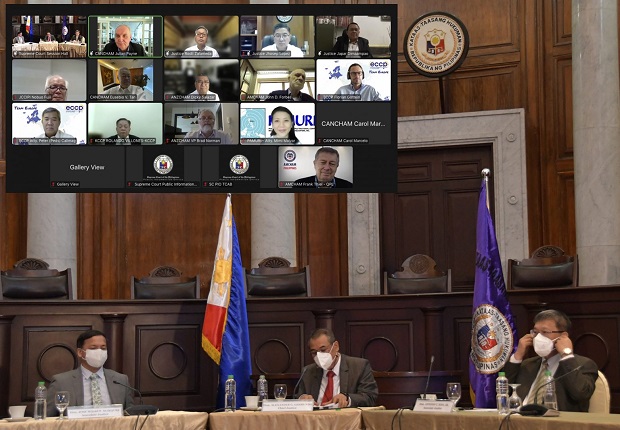The Supreme Court said on Friday, March 4, that it is looking to use artificial intelligence (AI) to improve operations in the judiciary as part of its drive to unclog court dockets and expedite decisions.
This was revealed by chief justice Alexander G. Gesmundo during a virtual meeting with the Joint Foreign Chambers of the Philippines (JFC) on Thursday, March 3.
“The Court aims to capitalize artificial intelligence (AI) to improve court operations, such as the use of technology in preparing transcripts of stenographic notes and in digitalizing judgments rendered,” said Gesmundo while giving an update on the plans the SC in unclogging court dockets and expediting the resolution of cases.
Apart from the proposed use of AI in modernizing the transcription process, the chief magistrate discussed other ICT-related initiatives of the high court:
- The Revised Guidelines on Submission of Electronic Copies of Supreme Court-Bound Papers Pursuant to the Efficient Use of Paper Rule, which provides that a modern e-filing network will be utilized to allow justices and selected court officials and personnel to securely access and view case records online, reduce the need of requesting for the physical rollo, and allow all concerned to work simultaneously and securely even under remote-work arrangements;
- The institutionalization of videoconferencing hearings for all courts nationwide; and
- The launch soon of the Judiciary e-Payment Solution arranged with UnionBank.
“As of 11 February 2022, there have been 778,206 videoconferencing hearings conducted with a success rate of 88.35%. There have been 112,760 persons deprived of liberty, 1,721 of which are children in conflict with the law, released using the modality of videoconferencing hearings,” shared Gesmundo on the court’s use of technology.
In addressing the integrity of the judicial system and allegations in corruption practices, Gesmundo also discussed the creation of the Judicial Integrity Board and the Corruption Prevention and Investigation Office, and the revision of Rule 140 of the Rules of Court.




